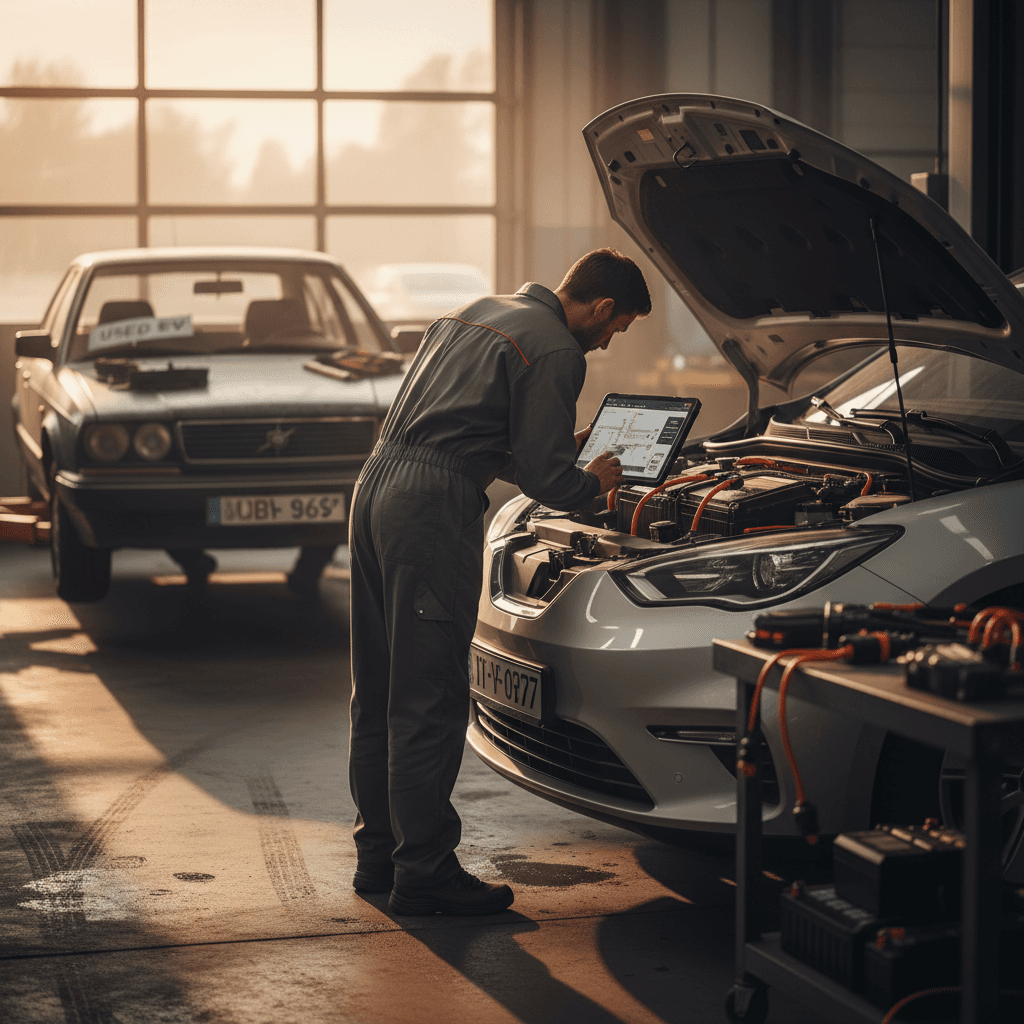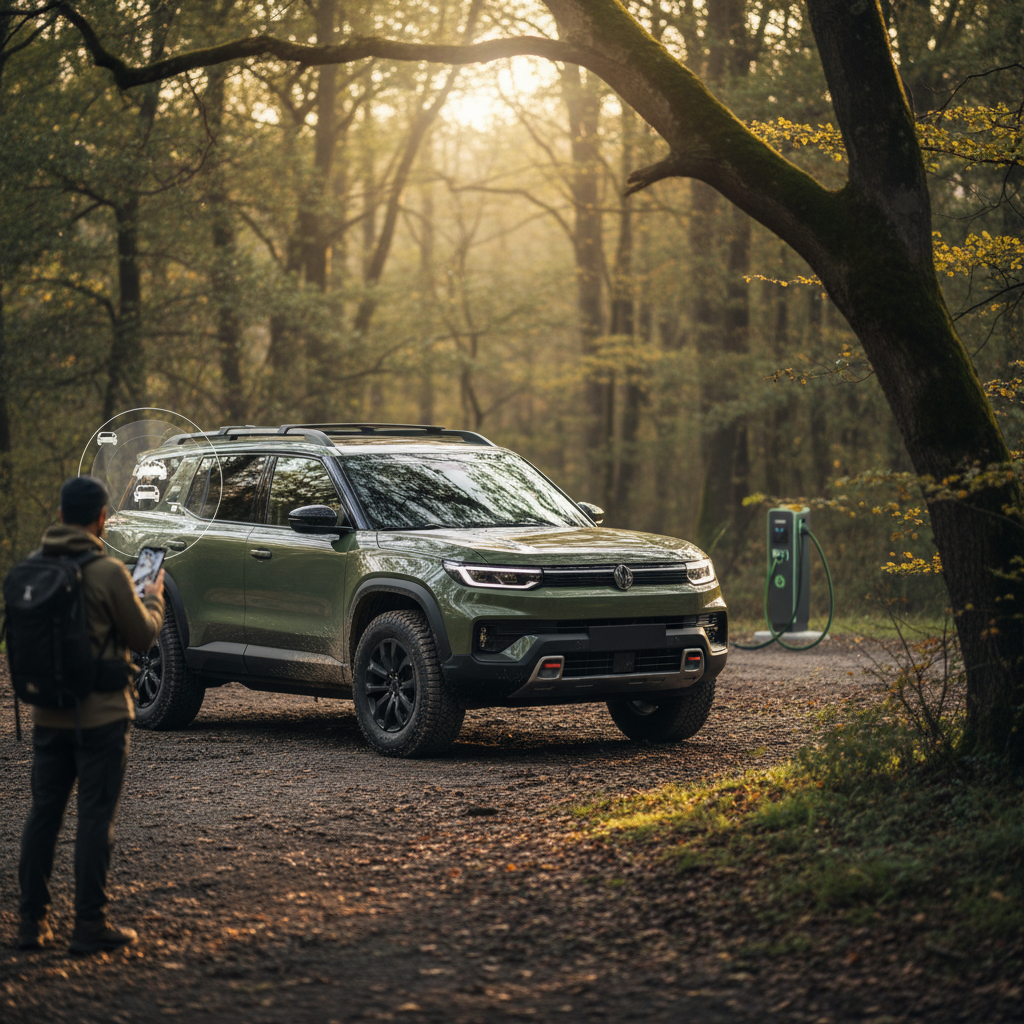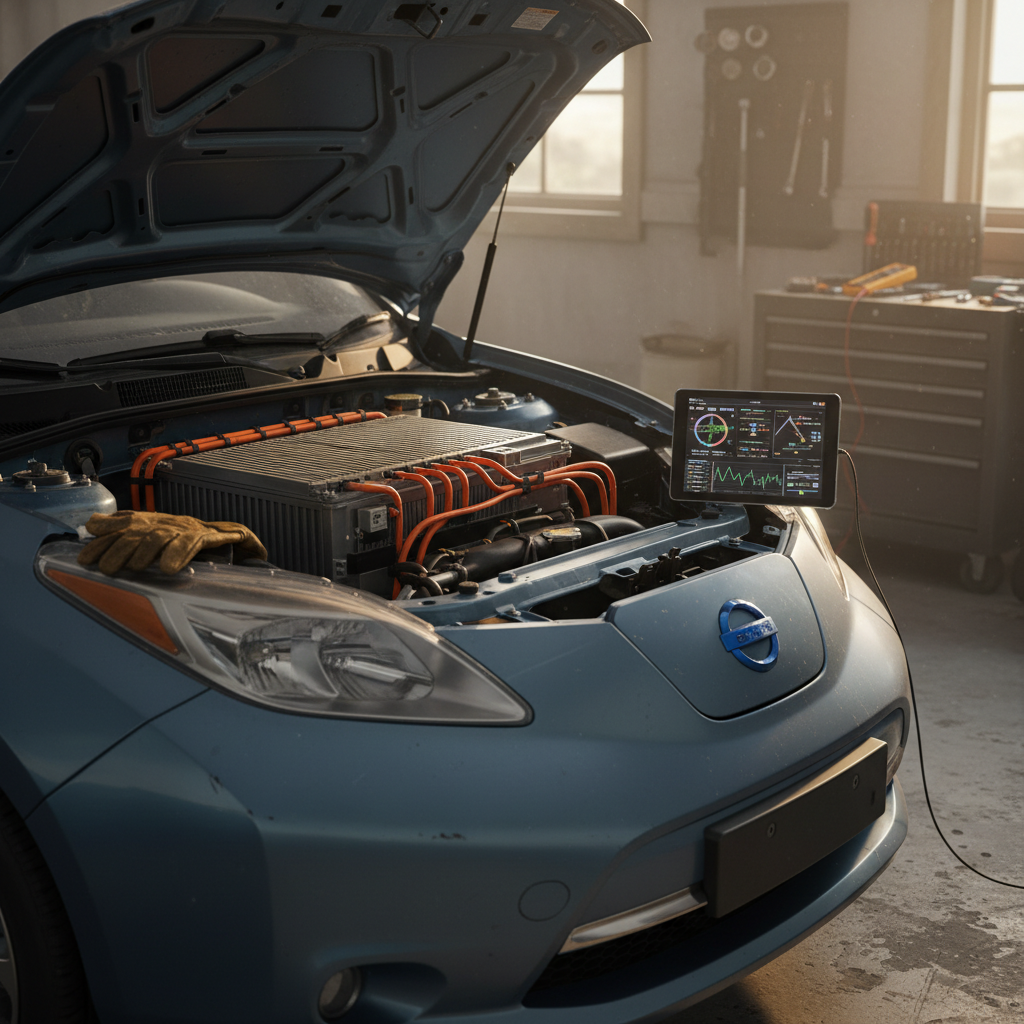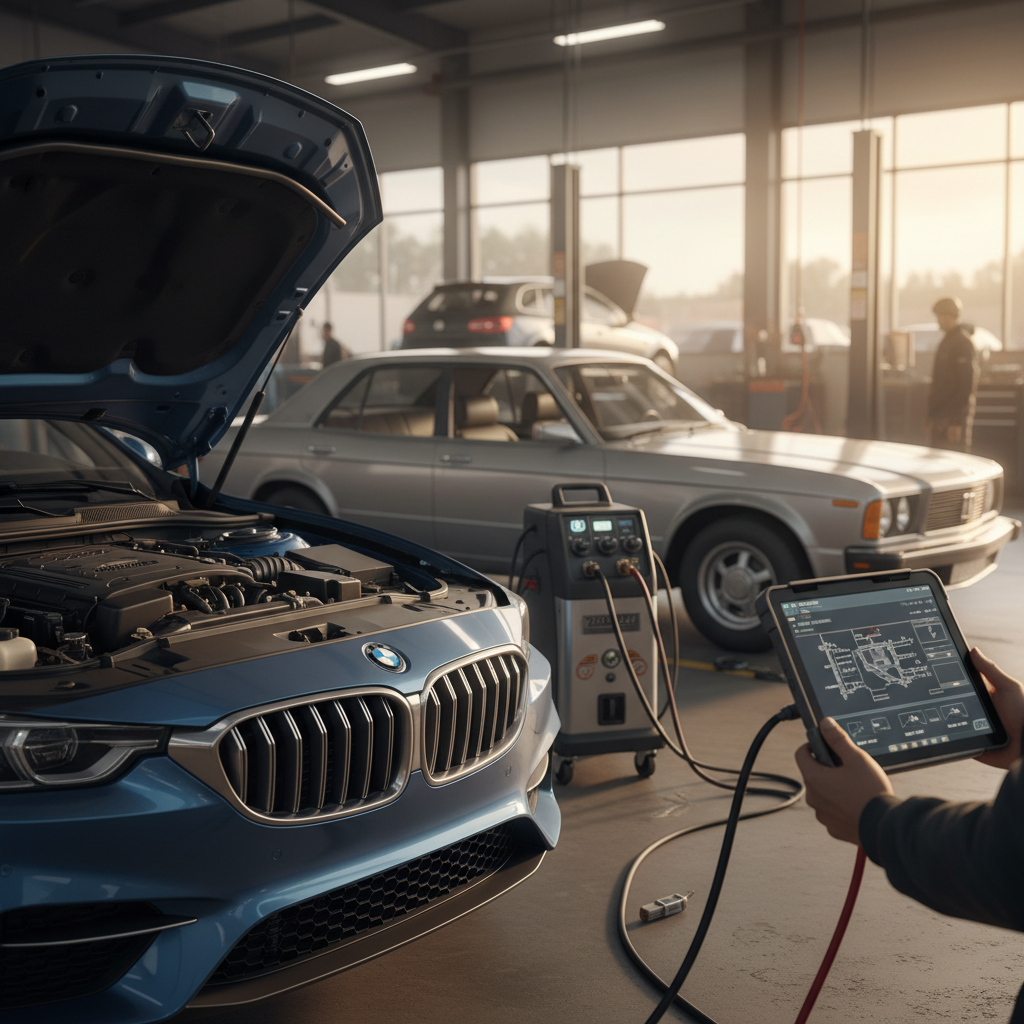If you’re searching for “electrical auto mechanics near me”, you’re probably driving, or thinking about buying, an electric or hybrid vehicle and want someone local who can actually work on all that high‑voltage hardware and software. The challenge in 2025 is that EV‑capable mechanics are in demand, technician training is still catching up, and not every neighborhood shop is ready for your battery pack.
The EV technician squeeze
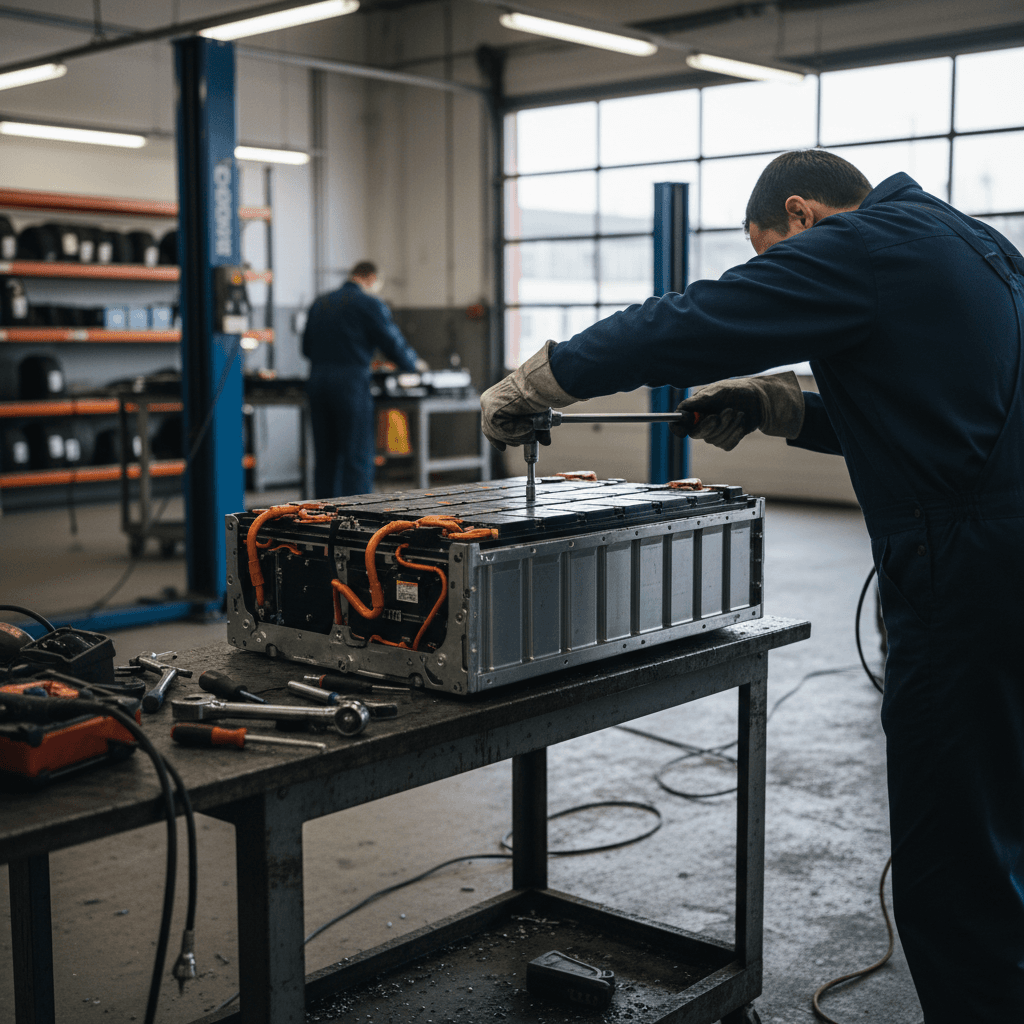
Why “electrical auto mechanics” matter for EV and hybrid owners
Electric vehicles don’t need oil changes or timing belts, but they still break, wear, and age. In fact, EVs tend to have far fewer routine maintenance items than gas cars, yet when something electrical goes wrong, especially around the battery or high‑voltage systems, you can’t just roll into any strip‑mall garage.
- EVs rely on complex battery management systems, inverters, onboard chargers, and high‑voltage wiring that require specialized tools and training.
- Collision or suspension repairs often involve safely powering down and sometimes removing the battery pack, which many traditional shops aren’t equipped to do yet.
- Software and sensor issues, from ADAS calibration to charging glitches, often look like “electrical problems” to you but require EV‑specific diagnostic equipment to solve.
At the same time, overall maintenance costs for EVs are significantly lower than for comparable gas cars over a 5–10 year window, largely because you skip engine‑related work and many fluid services. The right electrical auto mechanic helps you capture those savings without getting burned by misdiagnosis, long delays, or unnecessary parts swapping.
Don’t assume every “EV friendly” sign means trained staff
Where to start: finding EV‑friendly mechanics near you
When you type “electrical auto mechanics near me” into a search bar, you get a mix of traditional garages, dealership service centers, and a growing number of EV‑only shops. To narrow the list to credible options, stack several search methods instead of relying on a single site.
Four reliable ways to find local EV mechanics
Combine online tools with owner communities and certification checks.
1. Use EV‑specific directories
General sites like Google Maps and Yelp are a start, but look for tools that specialize in EV repair. These directories usually list:
- Shops that advertise EV or hybrid expertise
- Services like battery replacement or Tesla repair
- Coverage by brand, Tesla, Ford, Rivian, etc.
2. Tap owner communities
Local EV Facebook groups, Reddit communities, and brand‑specific forums are gold mines. Ask:
- “Which electrical auto mechanics near me have actually fixed your car?”
- Who handled complex jobs like charging faults or HV battery issues
- How long repairs took and whether communication was clear
3. Filter by EV‑relevant certifications
Look for technicians who mention:
- ASE L3 (Advanced EV/Hybrid)
- OEM training (Tesla, GM, Ford, Hyundai/Kia, etc.)
- High‑voltage safety training (often highlighted on shop sites)
These aren’t marketing buzzwords, they signal real investment in EV capability.
4. Read reviews with EV keywords
When you scan reviews, search for terms like “EV,” “Model 3,” “Leaf,” “Bolt,” or “ID.4.” You’re looking for:
- Specific repair stories, not just 5‑star ratings
- Mentions of electrical or charging issues they solved
- Comments about fair EV pricing vs. dealer quotes
Search smarter
How to tell if a shop really understands EVs
Once you’ve got a shortlist of electrical auto mechanics near you, the next step is separating true EV pros from shops that are just “willing to try.” A quick phone call and a look around the facility will tell you more than any ad.
Signs you’ve found a real EV‑capable electrical mechanic
They answer EV questions confidently
When you ask how they safely power down an EV before working on it, the service writer doesn’t hesitate or dodge. They can explain their process in plain language and mention high‑voltage safety procedures.
They see EVs every week, not once a quarter
The shop can estimate how many EVs they service per month and which models they see most. You want EV work to be normal for them, especially if you drive a Tesla, Mach‑E, Ioniq 5, or another popular model.
They can show proof of EV training
Ask which techs are trained on EVs and what programs they’ve completed. Things like ASE L3, OEM courses, and documented HV safety training are good signs.
The shop layout respects high voltage
Look for insulated tools, dedicated EV bays, safety cones, and clear labeling around battery work areas. A clean, organized shop usually reflects disciplined processes.
They talk openly about what they <em>won’t</em> do
A trustworthy mechanic will tell you when a problem should go back to the dealer, for example, warranty battery work, proprietary software glitches, or recalls.
The shops that are thriving with EVs aren’t just learning on the job, they’ve invested in tooling, training, and processes specifically for high‑voltage vehicles.
What local EV mechanics do vs. what the dealer still needs to handle
Even the best independent electrical auto mechanic has limits. In 2025, the EV service world is split: independents are getting very good at wear‑and‑tear items and many electrical issues, while dealers still hold a monopoly on certain software and battery work, especially under warranty.
What many independent EV mechanics can handle
- Brakes & tires: EVs eat tires faster and use regenerative braking, but the hardware is familiar. Good shops know the weight and torque loads involved.
- Suspension & steering: Bushings, control arms, and alignments are increasingly common as early EVs age.
- 12‑volt electrical issues: Many breakdowns still come from the humble 12V battery, not the big pack.
- HVAC & cabin electronics: Heat pumps, fans, and infotainment glitches often land at independent shops once out of warranty.
- Charging port and onboard charger faults (light to moderate): Some shops now have the diagnostic gear to chase intermittent charging problems.
What often still belongs at the dealer
- High‑voltage battery warranty claims: OEMs typically require their own procedures and tooling before approving pack replacement or module work.
- Major software bugs: Over‑the‑air updates cover a lot, but deep network or security‑related faults are still dealer‑level.
- Safety recalls and TSBs: These are designed and reimbursed around dealer service departments.
- Complex ADAS calibration: Radar, lidar, and camera recalibration after collisions can require OEM targets and software.
High‑voltage safety is non‑negotiable
Typical EV service costs and how to avoid surprises
One reason drivers are hunting for electrical auto mechanics near them is cost: franchised dealers often charge higher labor rates, and EV repairs can be more expensive when something serious fails. But routine service on an EV is still dramatically cheaper than on a gas car over time.
EV maintenance and repair economics in 2025
Typical five‑year maintenance cost ranges
Approximate owner‑paid maintenance (not including collision repairs) for a typical mid‑size vehicle, assuming 15,000 miles per year.
| Vehicle type | Annual routine maintenance | 5‑year estimate | Typical visit frequency |
|---|---|---|---|
| Gas car (ICE) | $900–$1,800 | $4,500–$9,000 | 4–6 visits per year |
| Electric vehicle | $150–$300 | $750–$1,500 | 1–2 visits per year |
Actual costs vary by region, model, and how often you visit the dealer vs. independent shops.
How to keep EV repair bills under control
Checklist: questions to ask an electrical auto mechanic
A five‑minute phone call can save you from hours of waiting room frustration and four‑figure invoices. Use this checklist the next time you’re vetting an electrical auto mechanic near you.
Key questions before you book an appointment
1. How many EVs do you service each month?
You’re listening for real‑world volume, not guesses. If they say “we’ve seen one or two” and your area has plenty of EVs, keep looking.
2. Which EV models are you most familiar with?
If they regularly work on your exact model, say, a Bolt EUV, Model Y, or Ioniq 5, that’s a strong positive signal.
3. Are your technicians ASE L3 or OEM‑certified for EVs?
Certifications aren’t everything, but they show serious commitment. Ask which tech would work on your car and what training they’ve completed.
4. What EV‑specific tools and safety procedures do you use?
You want to hear about insulated tools, battery isolation, lock‑out/tag‑out, and clear documentation, not “we just unplug the car.”
5. Do you handle high‑voltage battery work, or refer to the dealer?
Honest boundaries are good. Many excellent independents don’t open packs or attempt module‑level repairs yet, and that’s okay.
6. How do you estimate EV jobs and communicate if costs change?
Ask whether you’ll get a written estimate, photos or videos of issues, and approval requests before they exceed a quoted amount.
Used EVs: why battery diagnostics should come before the mechanic
If you’re shopping for a used EV, lining up an electrical auto mechanic near you is important, but getting objective battery health data is even more critical. The pack is the single most expensive component on the car, and traditional pre‑purchase inspections don’t tell the whole story.

What a typical pre‑purchase inspection covers
- Brakes, tires, suspension, and steering components
- Visible fluid leaks and underbody damage
- Basic electrical checks: lights, HVAC, windows
- Road test for noises and vibration
All of this is still essential, but on an EV, it’s only half the story.
What battery‑specific diagnostics add
- Current usable capacity vs. original (degradation)
- Cell balance, temperature behavior, and error codes
- Fast‑charging history and typical charge levels
- Early warning signs of modules that may age poorly
With accurate battery data, you and your mechanic can plan realistic maintenance and repair budgets.
How Recharged helps used‑EV buyers
Because Recharged also supports financing, trade‑ins, consignment, and nationwide delivery, you can shop for a used EV online, understand the battery before you buy, then build a relationship with the best EV‑savvy mechanic near you for ongoing care.
FAQ: electrical auto mechanics and EV service
Frequently asked questions about EV mechanics near you
Key takeaways for finding EV mechanics near you
- Use multiple tools, not just one search result, to find electrical auto mechanics near you: EV‑specific directories, owner communities, and certification filters all help.
- Vet shops for real EV experience: ask how many EVs they see, what models they specialize in, and what high‑voltage training they have.
- Use dealerships for warranty battery work, recalls, and deep software issues, while leaning on qualified independents for routine and many out‑of‑warranty repairs.
- Plan for lower total maintenance costs than a gas car, but higher bills if you have collision or complex electrical repairs.
- If you’re buying used, pair a battery health report, such as the Recharged Score, with a solid local EV mechanic to protect your investment.
The phrase “electrical auto mechanics near me” covers a lot of ground, from dealership service departments to small independent shops learning their first EV. Your job as an owner or shopper is to separate marketing from true capability. With a bit of upfront research, the right questions, and solid battery diagnostics from partners like Recharged, you can enjoy the lower maintenance reality of EV ownership while knowing exactly who to call when something electrical really does go wrong.
